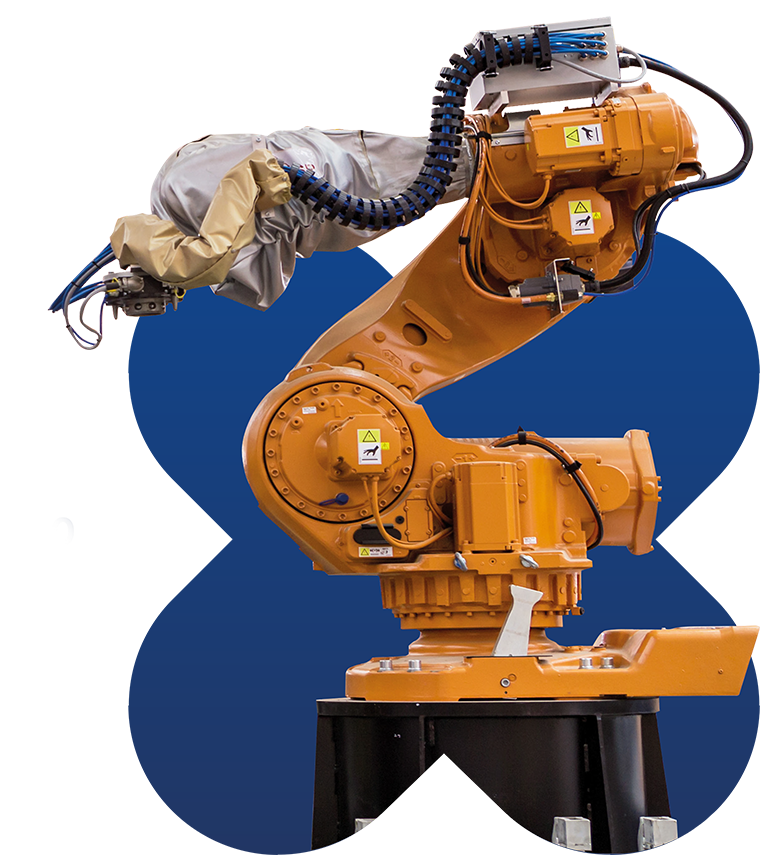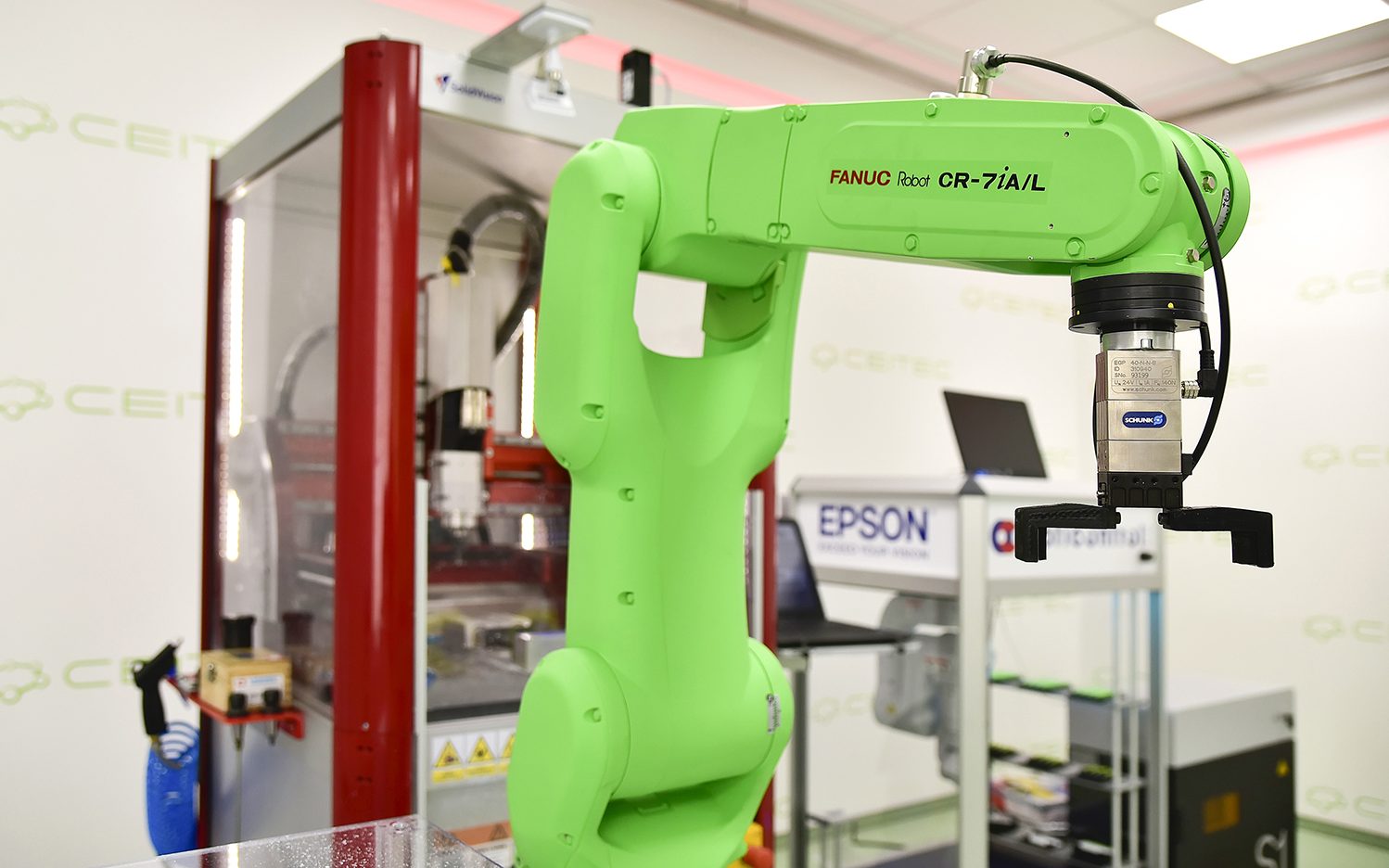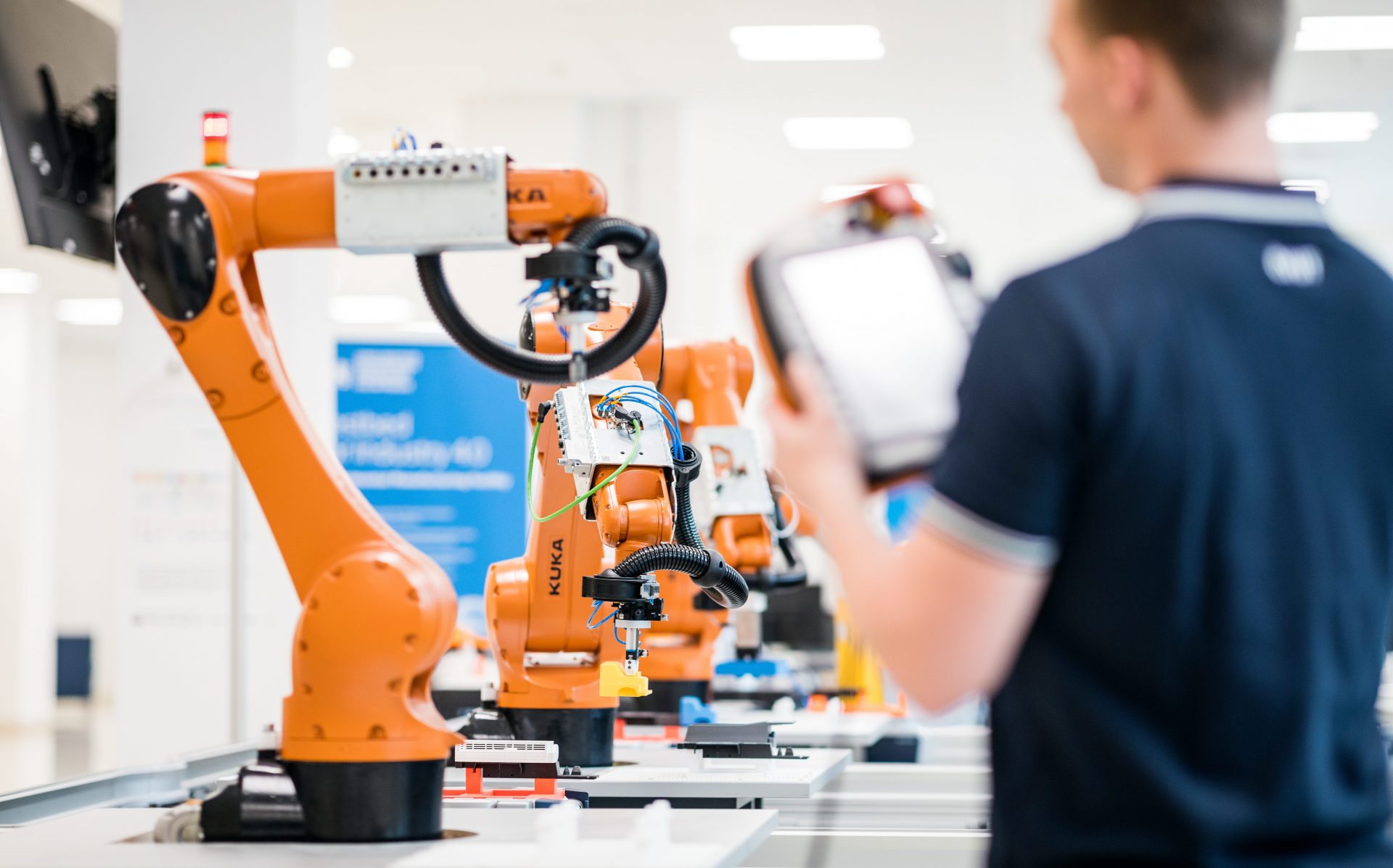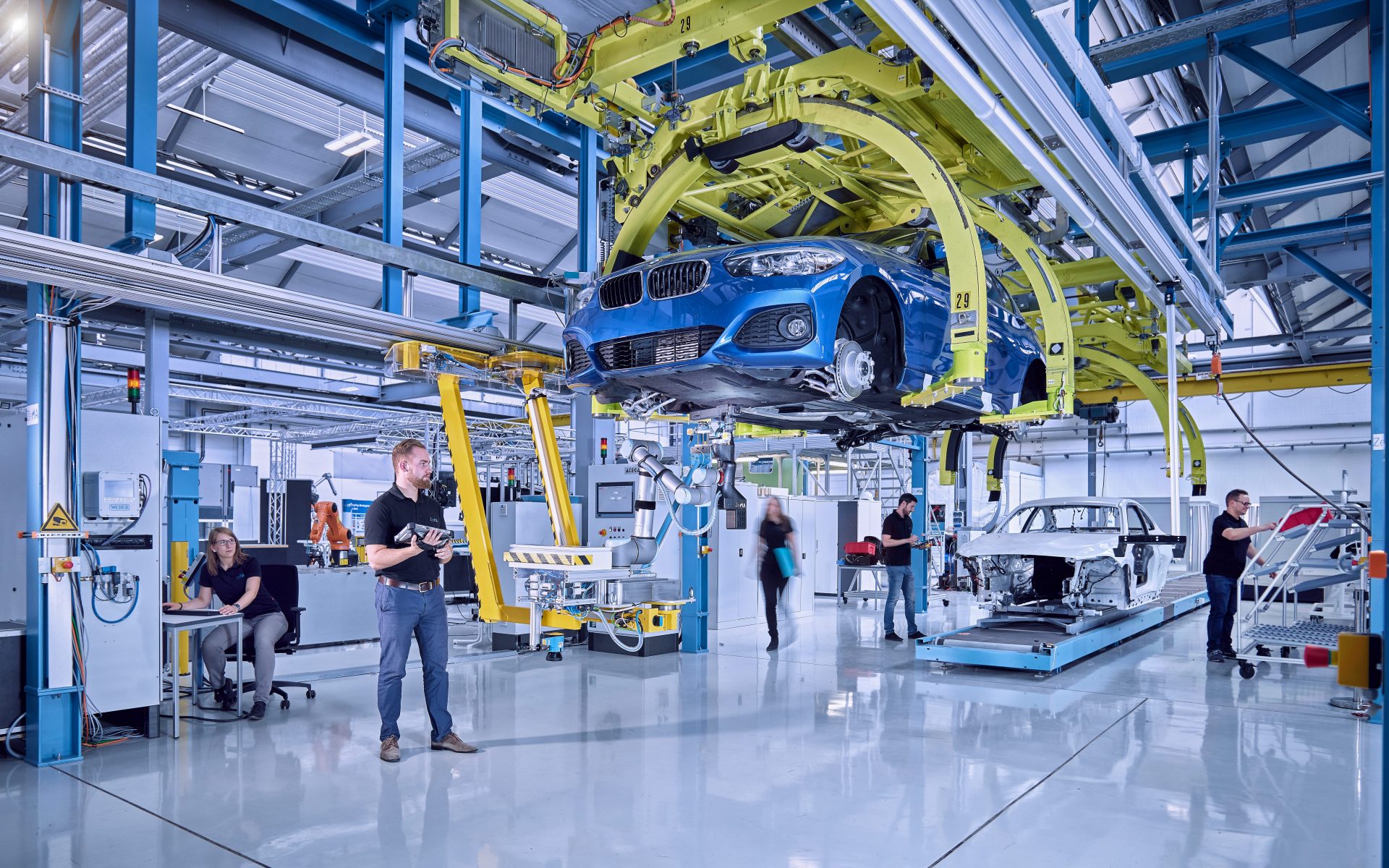Research Focus

- AI for Autonomous Robotics and Manufacturing Quality
IoT and data analytics, data storage, big data. Image processing, quality inspection, and control. Flexible robotic manipulation with various types of parts. Edge computing, data privacy, and sovereignty. - Manufacturing Machines and Processes
Additive manufacturing using various technologies, including robotic 3D printing. Machining, laser processes. Monitoring and control of manufacturing processes for improved quality and productivity. NC code generation and virtual simulation of CNC machine and robot operations. Robots in manufacturing, handling, and assembly. Process and machine diagnostics. Production optimization. - Digital Twin and Digital Shadow
Synchronization of physical systems and simulations. Virtual commissioning of manufacturing and processes. Dynamic machine models. Predictive maintenance. - Smart Factory and Distributed Manufacturing
Automated production planning, material flow planning. Modular and flexible production, logistics operations. Manufacturing-as-a-Service. - Advanced Energy Systems
Optimization of manufacturing processes integrating available energy sources. Electric power distribution systems incorporating diverse green energy sources.

- Flexible Manufacturing Systems
Additive and subtractive technologies, robotics, mobile manipulators, UGVs, UAVs. - Human-Machine and Human-Robot Collaboration
AR/VR technologies, precise localization and navigation in industrial environments. Remote monitoring, visual telepresence. - Machines and Mechatronic Systems
Diagnostics and sensors for predictive maintenance. Vibrodiagnostics, acoustic holography, acoustic emission. Advanced automation and AI applications. - Advanced Actuators
Advanced rotary and linear drives for industrial applications. Drive systems for electromobility. Fault-tolerant drives, advanced drive control. Diagnostics and monitoring. - Sensor Networks and IoT
- Edge computing, HPC, AI applications in industry

- Industry 4.0 and digitalisation
Research and development of
solutions for a digitised and
human-centred and reconfigurable production. - Robotics applications
Research in the area of human-robot-collaboration, Human-Robot Interaction and sensitive robotics. - Artificial Intelligence
Research and development in the area of multimodal dialogue systems, transfer learning, planning and neural symbolic imitation learning. - Remote collaboration
Research and development of
solutions for remote collaboration between distant production sites.
Industrial Testbed Core
Goals
RICAIP focuses on research areas related to Industry 4.0, in particular robotics and artificial intelligence (AI) for advanced industrial production. The aim of the distributed research and experimental workplace – Industrial Testbed Core – is to develop and test innovative solutions for advanced industrial production, continually optimizing to the changing environment. RICAIP EU Testbed Core aims to become a major contributor to the international standardization efforts and cybersecurity of the Industry 4.0 initiative, facilitating technology and knowledge transfer from academia to industry through the deployment and development of technical solutions tested and validated in the relevant industrial environment. The backbone of this infrastructure consists of the Industrial Testbed for Industry 4.0 at CIIRC CTU in Prague, the testbed at the CEITEC BUT institute in Brno, and the joint testbed of DFKI and ZeMA in Saarbrücken.

Testbed serves to

Verify Industry 4.0 solutions before implementation

Develop new partnerships between academia and industry

Inspire researchers and companies to adopt the ideas of Industry 4.0

Demonstrate the product lifecycle from the first ideas to production

Promote Industry 4.0 to companies and public

Transfer Industry 4.0 into industry

Open the equipment to different user groups




